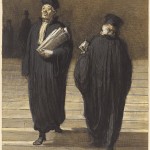How Scam Blogging Threatens the Law’s Professional Image
 I first want to express my sincerest gratitude for the opportunity to appear on the Marquette University Law School Faculty Blog. I have been a long time reader of the Faculty Blog, and what was true when I first started reading this blog continues to be true now: I have thoroughly enjoyed the quality of content posted here on a regular basis. We have Alan Borsuk’s timely pieces on public education. We can watch the fireworks as Professors Esenberg and Fallone debate. And Dean O’Hear’s posts flag for us new and forthcoming scholarship by members of the Marquette community (to say nothing of his posts tracking cutting edge developments in federal criminal law). In short, this blog has gotten it right.
I first want to express my sincerest gratitude for the opportunity to appear on the Marquette University Law School Faculty Blog. I have been a long time reader of the Faculty Blog, and what was true when I first started reading this blog continues to be true now: I have thoroughly enjoyed the quality of content posted here on a regular basis. We have Alan Borsuk’s timely pieces on public education. We can watch the fireworks as Professors Esenberg and Fallone debate. And Dean O’Hear’s posts flag for us new and forthcoming scholarship by members of the Marquette community (to say nothing of his posts tracking cutting edge developments in federal criminal law). In short, this blog has gotten it right.
Some law blogs, however, are not quite so lucky. In fact, one trend in law blogs that has garnered nationwide attention this year is an example of blogging gone wrong. That trend is called “scam blogging.”
Here is an account of how the scam blogging movement came to be.
